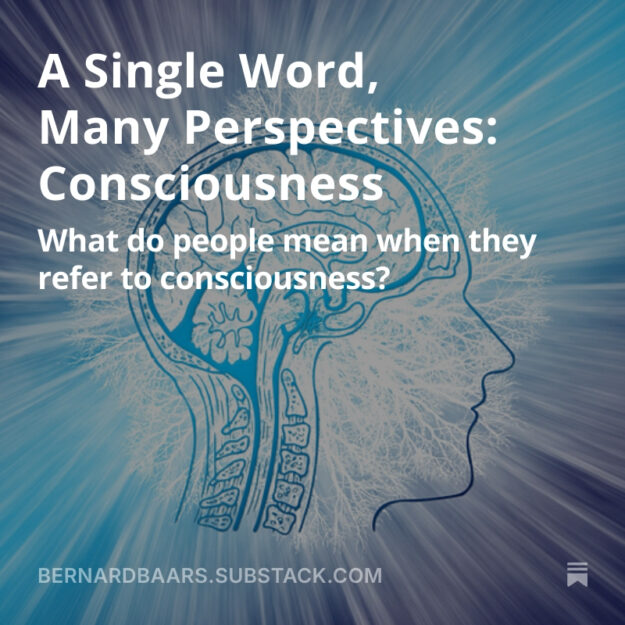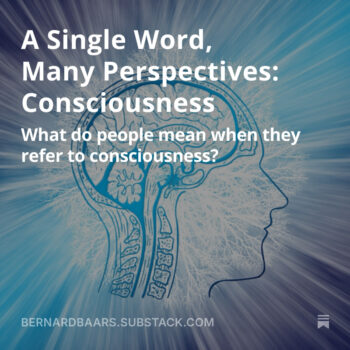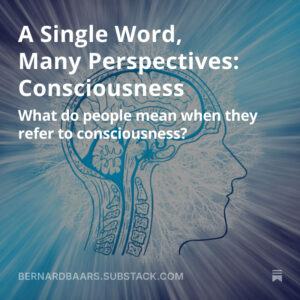A Single Word, Many Perspectives: Consciousness
“Consciousness” has several meanings. It is used in biomedical science to refer to the state of waking consciousness, as assessed by responsiveness to questions, commands, and mild pain, by the classical scalp EEG of waking, and by the ability to describe oneself and current events. However, in scientific work “consciousness” is also used to refer to the […]
“Consciousness” has several meanings.
It is used in biomedical science to refer to the state of waking consciousness, as assessed by responsiveness to questions, commands, and mild pain, by the classical scalp EEG of waking, and by the ability to describe oneself and current events.
However, in scientific work “consciousness” is also used to refer to the “dimension of conscious vs. unconscious brain events” – that is, as an experimental variable that allows us to study brain differences attributable to consciousness.
This usage is profoundly different from the first, since it involves a measurable dimension of variation. Yet “consciousness as an empirical variable” is still commonly confused with the waking state or with subjectivity. They are linked, but not the same.

















